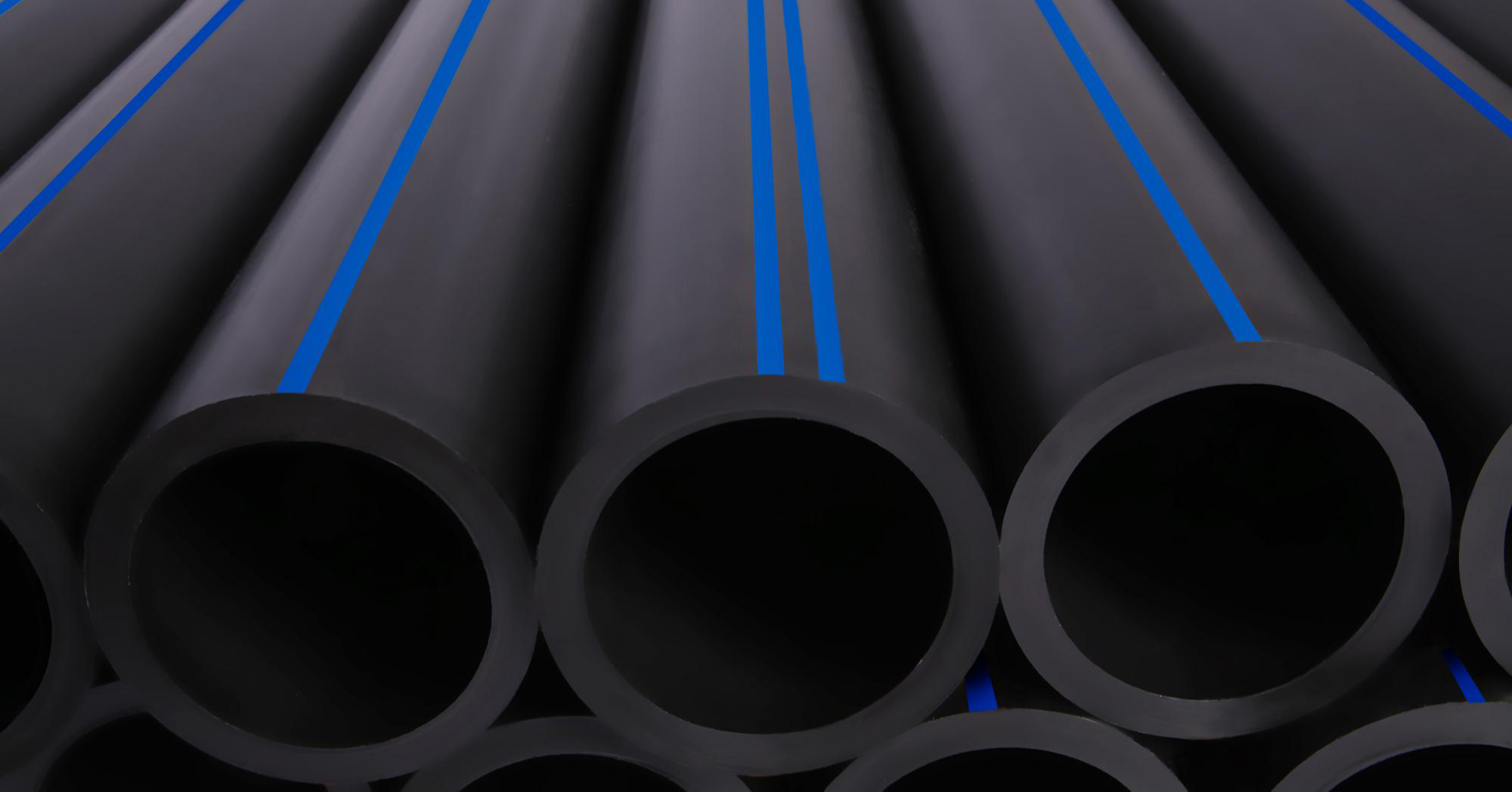hdpe pipe suppliers Midland TX: Things to Consider for Contractors
Wiki Article
Understanding the Key Benefits of HDPE Pipe for Water and Wastewater Management
Making use of HDPE pipe in water and wastewater management presents various advantages that merit factor to consider. Its outstanding durability and lengthy life-span make it a preferred choice for many projects. In addition, the product's resistance to rust and chemical damage boosts its reliability in various environments. The advantages prolong past simply longevity and resistance. hdpe pipe in stock Midland TX. Exploring its cost-effectiveness and ecological effect discloses a lot more compelling factors for its extensive adoption in modern-day facilitiesOutstanding Resilience and Long Life

HDPE pipeline stands apart for its extraordinary sturdiness and longevity, making it a favored selection in water management systems. Constructed from high-density polyethylene, these pipes can hold up against significant pressure and anxiety, guaranteeing trusted performance over time. Their robust nature enables them to withstand severe ecological problems, consisting of temperature level fluctuations and soil movements, which can trigger other materials to fall short.
The life expectancy of HDPE pipelines usually exceeds half a century, supplying a cost-effective service for towns and industries alike. Additionally, the material's light-weight residential or commercial properties streamline installment, reducing labor costs and timeframes. This resilience reduces the need for frequent fixings or substitutes, better boosting its financial charm.
In water management applications, the reliability of HDPE pipelines indicates fewer disruptions and boosted solution continuity, making them integral to lasting framework growth. The mix of toughness and durability strengthens HDPE's duty as a cornerstone in effective water administration solutions.

Resistance to Rust and Chemical Damages
While many products catch deterioration and chemical damages over time, HDPE pipelines exhibit amazing resistance, making them excellent for different water monitoring applications. This resilience stems from the molecular framework of high-density polyethylene, which is naturally non-reactive and does not corrode like metals or weaken from exposure to extreme chemicals. Because of this, HDPE is extremely effective in atmospheres with hostile materials, such as wastewater systems that may consist of acids, bases, and natural solvents.
In addition, HDPE pipes can endure ecological factors such as soil level of acidity and saline problems, additionally boosting their viability for diverse applications (Texas hdpe pipe manufacturer). Their ability to keep structural integrity over time decreases the danger of leaks and failures, which is vital in making sure the safety and security and integrity of water circulation and wastewater monitoring systems. The resistance to deterioration and chemical damages substantially adds to the total performance and durability of HDPE piping options.
Cost-Effectiveness and Economic Advantages
When considering the economic effects of water management systems, the cost-effectiveness of HDPE pipelines comes to be obvious. These pipes provide lower installation and upkeep prices compared to typical products like metal or concrete. Their lightweight nature streamlines transport and setup, resulting in reduced labor expenditures. Furthermore, HDPE pipes show a lengthy life expectancy, usually exceeding half a century, which equates to less replacements and lasting financial savings.Furthermore, the resistance of HDPE to deterioration and chemical damages reduces the demand for expensive fixings and replacements. The pipelines likewise sustain efficient water circulation, decreasing power prices connected with pumping systems. By mitigating leaks and water loss, HDPE pipelines contribute to significant economic advantages for districts and industries alike. On the whole, the preliminary financial investment in HDPE piping can yield considerable monetary returns over the life-span of the water management system, making it a prudent option for sustainable facilities advancement.
Ecological Sustainability and Lowered Impact

Versatility and Adaptability in Setup
As a result of their unique buildings, HDPE pipes provide remarkable versatility and adaptability in setup, making them suitable for a wide variety of applications. Their light-weight nature enables for much easier handling and transportation, minimizing labor prices and installation time. HDPE pipes can be curved and shaped to fit various terrains and task requirements, which is especially useful in testing settings.Additionally, their resistance to rust and visit here chemical damages allows for setup in diverse settings without the demand for specialized safety coverings. navigate to these guys The capability to fuse joints develops a continuous, leak-free system, boosting the overall stability and dependability of the installment. HDPE's flexibility also fits ground activity, decreasing the risk of damage in locations prone to shifting soil. On the whole, these qualities make HDPE pipelines not just functional however also a favored selection for water and wastewater management systems.
Frequently Asked Concerns
Just How Does HDPE Pipeline Compare to PVC in Water Management Applications?
HDPE pipe uses premium flexibility, resistance to corrosion, and toughness contrasted to PVC. Its lighter weight helps with less complicated setup, while its lengthy life-span lowers substitute prices, making HDPE a recommended selection in water monitoring applications.What Is the Lifespan of HDPE Pipes Under Common Conditions?
Under typical conditions, HDPE pipelines can have a lifespan varying from 50 to 100 years. Their durability and resistance to deterioration contribute to their lasting efficiency in different applications, making them a reliable selection for framework.Are HDPE Water Lines Recyclable After Their Solution Life?
Yes, HDPE pipes are recyclable after their solution life. Texas hdpe pipe manufacturer. They can be refined and repurposed right into new items, greatly decreasing environmental influence and promoting sustainability within the sector, making them an eco-friendly selection for piping optionsWhat Is the Setup Refine for HDPE Piping?
The setup procedure for HDPE pipes entails site prep work, trenching, pipe combination or mechanical joining, backfilling, and pressure testing. Proper strategies guarantee a resilient and effective system for carrying water and wastewater properly.Can HDPE Pipes Be Used for Both Safe And Clean and Non-Potable Water Systems?
Yes, HDPE pipelines can be utilized for both potable and non-potable water systems. Their versatility, Learn More longevity, and resistance to rust make them suitable for different applications, making sure secure and effective transportation of water in different contexts.Report this wiki page